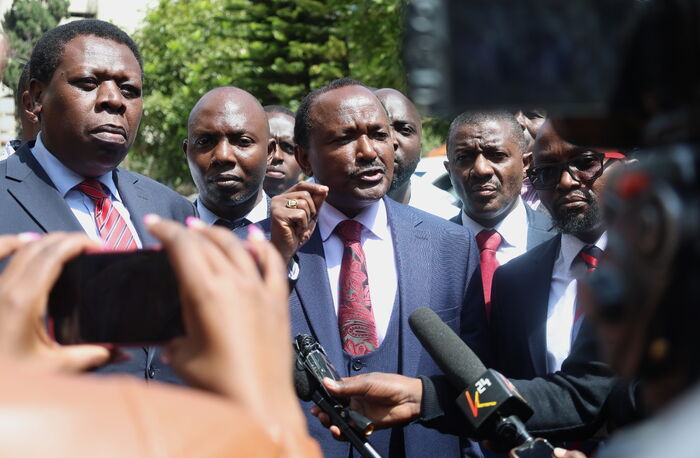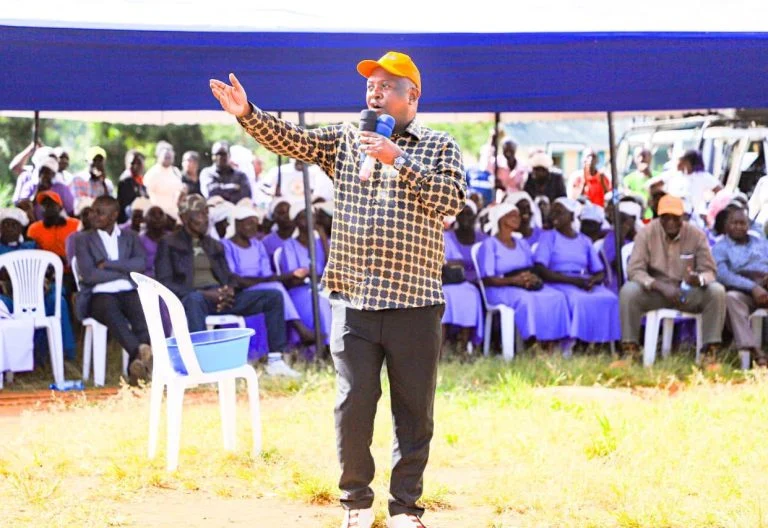Kiharu Member of Parliament Ndindi Nyoro has issued a stinging rebuke against the government’s recently unveiled Ksh 44.8 billion Talanta Infrastructure Bond, calling it a “reckless” move that will saddle Kenyan taxpayers with an unsustainable debt burden for the next 15 years.
Speaking at a press briefing, Nyoro criticized the financial structure of the bond, arguing that its 15.04% semi-annual interest rate translates to a total repayment that could exceed Ksh 100 billion—more than double the original borrowing amount.
He accused the government of financial recklessness and warned that the cost of servicing the debt would deprive essential sectors like health, education, and agriculture of much-needed resources.
“If that cannot make us angry as Kenyans, I don’t know what will,” Nyoro stated, pointing out that the government’s increasing reliance on expensive off-balance-sheet borrowing reflects poor economic planning.

The bond, which was launched to fund the construction of the new 60,000-seat Talanta Sports City Stadium ahead of the 2027 Africa Cup of Nations, was touted by the executive as a transformative step in Kenya’s sports infrastructure.
However, Nyoro dismissed the stadium project as a politically motivated venture that will offer little economic return while piling long-term debt on the nation.He further claimed that even some officials within the National Treasury privately disapprove of the bond’s structure but are unable to voice their concerns due to political pressure. “We are now mortgaging every possible revenue stream the government has—fuel levy, stadium levy, airport tax—all in the name of quick money,” Nyoro said.
The MP, who formerly chaired the powerful Budget and Appropriations Committee, expressed concern over what he termed the government’s “obsession” with image-driven projects instead of sustainable economic reforms.
He challenged the administration to focus on expanding the productive base of the economy rather than relying on loans to finance symbolic infrastructure.Public debate around the Talanta bond has intensified, with critics questioning its transparency, long-term impact, and whether the public was adequately consulted.
Supporters argue that the stadium will boost national pride, create jobs, and attract international sporting events, but Nyoro insists the cost far outweighs the benefits.
As economic pressures mount and public debt continues to rise, the bond is likely to become a flashpoint in the coming parliamentary sessions, with lawmakers and civil society groups expected to demand detailed disclosures on repayment terms, beneficiaries, and procurement processes.
The controversy over the Talanta Sports City project underscores the broader tension in Kenya’s public finance management: balancing ambition with affordability, and legacy with responsibility.













Leave a Reply